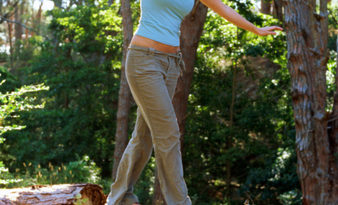Five Ayurvedic Tips to Soothe Anxiety
We have all been there. In a state of panic or obsessive worry that we just can’t seem to break free of. It affects our relationships, our ability to function and our motivation for life. So what can be done? In Ayurveda anxiety is considered to be a Vata condition. This is because the Vata dosha is governed by the space element and space resides in the ear. When you are anxious your internal voice won’t stop its monologue. It is said that worry is in the ear, not in the eye. This condition is often the result of cortical rigidity. Which takes place when the limbic system and emotional brain have lost the capacity to respond flexibly to changing circumstances. This makes us worry and obsess, because we are trying to stop change from happening. As all of us know that is impossible so better to cultivate the emotional responsiveness and re-establish our cortical plasticity. Some ways to do this are:
- Catch the episode as soon as it starts. Anxiety normally has prodromal symptoms that begin before we start to launch. It may be an uncomfortable feeling. It may be biting nails or craving certain foods. The sooner that we can recognize the signs of anxiety the sooner we can apply a remedy.
- Relaxation Methods. After identifying that an episode is beginning apply a relaxation method. If you are in public this may be as simple as taking some deep breaths. If you are alone you may be able to meditate or do a visualization. Whatever strategy that you employ stick to it. Over time your body will start to respond to anxiety with relaxation because of your dedicated commitment to your relaxation method.
- Practice makes permanent. Practice relaxation methods daily. It is not enough to only practice when you are in an episode. It is important to practice mediation, visualization, affirmation, breathing or any other relaxation method every day so that it can become more familiar. Otherwise you are fighting an uphill battle.
- Actively challenge the validity of your worry. Once you have been successful with the previous steps it is important to challenge your worrisome thought. Chances are that the thought is not reality based and so when you can challenge it will no longer hold you hostage. Ask yourself questions like.
- Is this thought true?
- Is there any situation where this thought is not true?
- What is the opposite of this thought?
Anxiety is usually guided by our emotional brain, and questions like this encourage our analytical brain to wake up and get involved helping us to think more clearly about what is happening to us. Questioning is the key to breaking out of anxiety that can eventually lead to melancholy. It can be useful to come up with a list of questions or a process that you use when you are faced with ruminating thought. Questions like:
- Is this thought valid?
- Under what circumstances would this thought not be valid?
- Are there situations where this thought would not be valid?
- What is a positive alternative to this thought?
- What is the consequence of this thought?
This questioning approach can help to break the cycle of thoughts that can eventually spin out of control. If your mind is not able to stop these spinning thoughts on its own you may want to schedule a pleasant distraction event. Spend time with friends, go to a comedy, or take a puppy for a walk. These types of activities will help you to break through your habitual thoughts and allow you the space with which to question your thoughts.
Once that your anxiety and melancholy are not longer feeding on the perpetual thoughts, you can start to focus on lifting your mood. In order to lift your mood, it is important to engineer small triumphs in your life that may be out of the ordinary. These small victories or easy successes will allow you to start to feel better about where you are. On the other hand, employing destructive or self sabotaging behavior will have the opposite effect, so be extremely diligent to choose activities that will be supportive. Another strategy is to help others in need. Often times our anxiety and problems feel small when compared to others who are in true need. Volunteer at a veteran’s hospital or a homeless shelter. By being around others less fortunate it can put our anxiety in perspective. Lastly find some grace. It can be a lot of effort to change the course of our thoughts and to start seeing things from a new perspective and frame things in a new way. Remember that you are connected to a higher power and feel the effects of grace on your life.
People who don’t experience anxiety are often considered unflappable. This doesn’t mean that bad things don’t happen to them. It means that they have developed a mental strategy that allows bad things to happen but their brains do not register it because a neural mechanism interferes with the transfer of upsetting information. Even when faced with obstacles and challenges, the area of their brain where good feelings arise is predominant. This is the essential task of yoga postures. It retrains the body to be able to experience complicated and challenging postures as leading to deep relaxation and confidence.
At first these techniques can feeling demanding. It is not always easy to experience distress in a positive light. We are habitual creatures and so the more that you employ these techniques, they more effective they become until your knee jerk response is to be unflappable. All behavior is malleable under the right circumstances, with adequate time and commitment.




